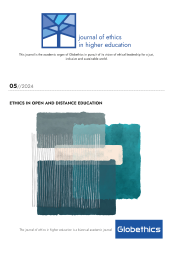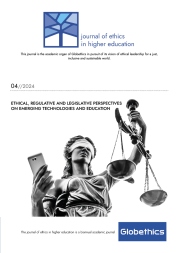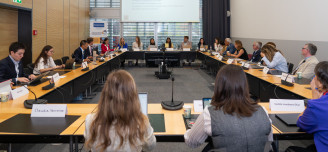Journal of Ethics in Higher Education - Issue 5(2024)
Abstract
Open education is in comparison to the UNESCO 2021 recommendation for open science, based primarily on the intellectual virtue of open science. We easily notice in this text the great admiration for a philosophical positivism, placing academic knowledge and science in the center of some collaborative practices: “open, transparent, collaborative and inclusive scientific practices, coupled with more accessible and verifiable scientific knowledge subject to scrutiny and critique, is a more efficient enterprise that improves the quality, reproducibility and impact of science, and thereby the reliability of the evidence needed for robust decision-making and policy and increased trust in science.” There is a “vital importance of science, technology and innovation (STI)”, if not for “promoting democracy and peace” or for complying with the UN “Sustainable Development Goals”, open science or its younger brother open education are meant surly to reduce a de facto economically unequal situation in the world, which can be depicted as distance or “digital gaps” existing “between and within countries”.
Open economy of knowledge suggests a ground principle of negative freedom not to be constrained in an access to some basic goods. We should think about natural conditions, not only political and economical or human decision related constraints: Africa, and the least developed countries (LDCs), landlocked developing countries (LLDCs), show that natural types of constraints are everywhere. Interestingly, twelve among the poorest countries (with the lowest Human Development Index, (HDI) scores) are landlocked, or isolated places. With eight thematic articles focusing on open and distance education, JEHE 5(2024) is reaching closer to the heart of interdisciplinary research, bringing thought elements for policy in artificial intelligence and education, by showing that good conversations on ethics can bring teaching and research beyond the traditional gaps.



